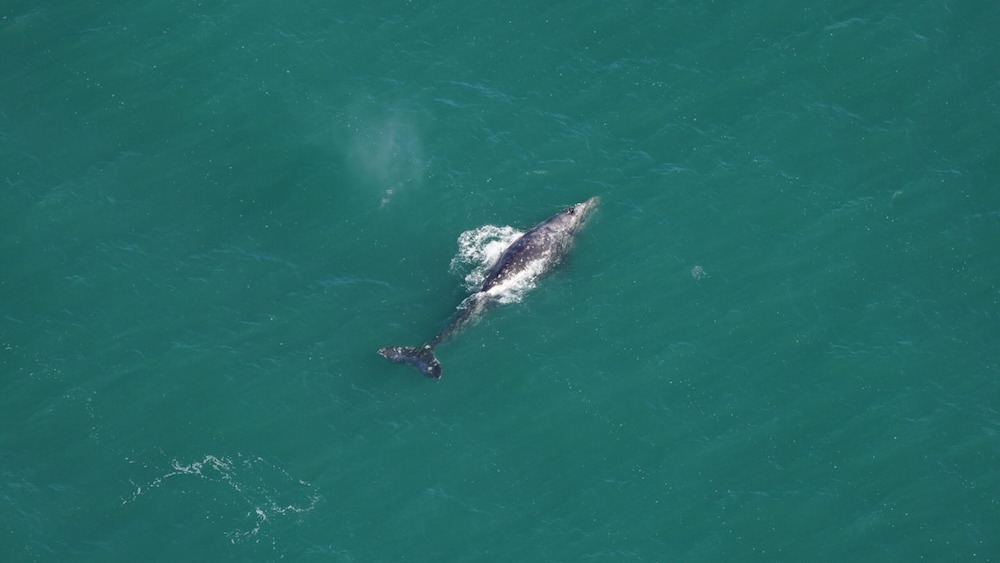'Should not really exist in these waters': Scientists spot gray whale, thought to be extinct in the Atlantic, off Massachusetts coast
Scientists spotted a gray whale — believed to be extinct in the Atlantic Ocean — while conducting an aerial survey.

Scientists experienced an "incredibly rare event" last week when they saw a gray whale cruising through New England's coastal waters.
The gray whale (Eschrichtius robustus) was believed to be extinct in this part of the Atlantic Ocean; the species has not been spotted there in more than 200 years, according to a statement from Boston's New England Aquarium.
The gray whale is known for its mottled gray body and supreme size — females top out at 49 feet long (15 meters) and weigh 90,000 pounds (41,000 kilograms), on average. It lacks a dorsal fin; instead, it has a dorsal hump on its lower back, according to the National Oceanic and Atmospheric Administration.
While conducting aerial surveys on March 1, researchers from the aquarium noticed the lone whale swimming 30 miles (48 kilometers) south of Nantucket, Massachusetts. The animal, which appeared to be hunting, "dove and resurfaced," enabling those on board the plane to photograph the whale in action. The scientists had an idea of what they were seeing, but they didn't know for sure until they returned to the aquarium to review the images.
"I didn't want to say out loud what it was, because it seemed crazy," Orla O'Brien, associate research scientist at the New England Aquarium's Anderson Cabot Center for Ocean Life, said in the statement.
Related: Scientists finally figure out why hundreds of gray whales keep washing up dead along US coast
O'Brien shared her photos with fellow researchers, who confirmed that her suspicions were correct.
Sign up for the Live Science daily newsletter now
Get the world’s most fascinating discoveries delivered straight to your inbox.
"My brain was trying to process what I was seeing, because this animal was something that should not really exist in these waters," Kate Laemmle, a research technician at the aquarium, said in the statement. "We were laughing because of how wild and exciting this was — to see an animal that disappeared from the Atlantic hundreds of years ago!"
While gray whales are common in the Pacific Ocean, the last recorded sighting in this part of the Atlantic occurred in the 18th century. In the past 15 years, only five of the creatures have been spotted in Atlantic and Mediterranean waters, including a rare sighting in December off the coast of Florida. Scientists think this could be the same whale.
Experts are unclear as to why the whale traveled so far north, but they think climate change could be partially to blame. That's because the Northwest Passage, a sea lane in Canada connecting the Atlantic and Pacific oceans, has been "regularly ice-free " in recent years, partly due to rising global temperatures," according to the statement.
"These sightings of gray whales in the Atlantic serve as a reminder of how quickly marine species respond to climate change, given the chance," O'Brien said in the statement.
Jennifer Nalewicki is former Live Science staff writer and Salt Lake City-based journalist whose work has been featured in The New York Times, Smithsonian Magazine, Scientific American, Popular Mechanics and more. She covers several science topics from planet Earth to paleontology and archaeology to health and culture. Prior to freelancing, Jennifer held an Editor role at Time Inc. Jennifer has a bachelor's degree in Journalism from The University of Texas at Austin.










